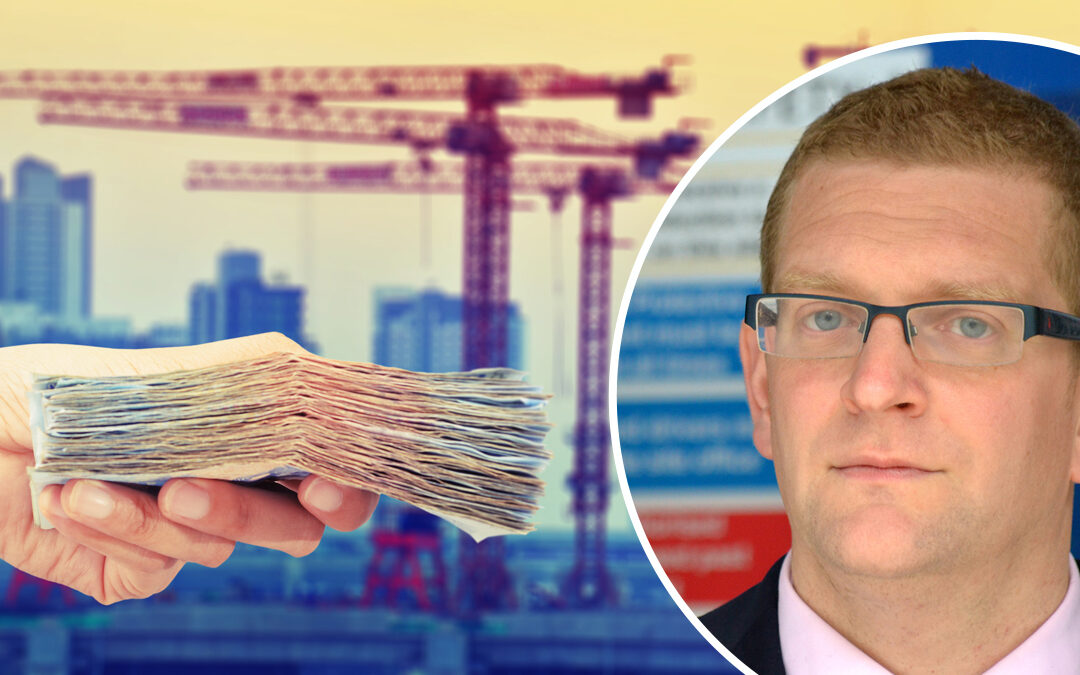The Construction Industry Collective Voice (CICV) has reassured clients that ongoing price rises for projects are caused by global events not “profiteering” – and says any increases only reflect the spiralling costs that are affecting the whole construction industry.
Clients have voiced concerns at the increasing costs of construction work, but the body insists this is due only to ongoing global events sparking a rise in fuel costs and shortages of raw materials and labour.
Iain McIlwee, FIS Chief Executive said:
“The war in Ukraine, energy price hikes, impact of Brexit and fallout from COVID-19 have all created a ‘perfect storm’ just as there is a surge in demand, with price increases being imposed on the industry as a result.
Construction professionals are increasingly being forced to shoulder these ongoing rises, particularly when it comes materials, and are having no option but to pass these increases on to clients. But it is not profiteering – it is a necessity for these businesses to survive.”
The CICV’s Post-Brexit & Trade sub-group this week discussed the higher costs for raw materials, energy, labour and transport being faced by construction businesses of all sizes in Scotland, with particular focus on inflationary pressures for SMEs caused by external factors.
Iain added:
“This is a really challenging time for all in the construction supply chain with costs rising, often at short notice. The critical thing now is that we work together as a supply chain.
Too often in construction we have contracted down all risks, but we are now in a position where fixed prices could undermine the resilience of contractors or suppliers and we need to adopt a more collaborative approach and consider how fluctuations clauses can be deployed and any risks fairly shared so as not to undermine the quality or viability of a project or businesses.”
The CICV says as well as the negative impact of political, military and health issues, the withdrawal of red diesel in April has also led to higher costs for construction firms.
Chris Cassley, Policy Manager at CICV member the Construction Plant-hire Association (CPA), said:
“The UK Government’s environmental strategy with the removal of red diesel for construction plant has undoubtedly contributed to the current financial impact on industry, and despite representations to government departments, has proceeded regardless.
“The rise in energy and material prices, together with supply chain pressures and higher inflationary figures, has led to a tipping-balance for suppliers and customers alike, and in many instances resulted in necessary price increases. These increases are very likely to be passed back up to the client and for government projects, it will be the taxpayer who will ultimately have to pay.”
Another warning came from Andrew Richards, Strategic Director of Safedem and a member of the Construction Scotland Industry Leadership Group, (representing SMEs and the supply chain) which is working in tandem with CICV to support the industry. Mr Richards said:
“The knock-on effects caused by the global events of the past two years looks like they will continue for the immediate future, so clients should consider fluctuations and rises in construction costs as part of ‘the new normal’ and shouldn’t expect prices to fall any time soon.
“Construction professionals are equally concerned about the uncertainty that surrounds the marketplace and are only passing on cost increases through necessity, not greed.”
The Post-Brexit & Trade panel is one of 12 sub-groups run by the CICV, covering a range of issues ranging from health and safety and skills to the supply chain and project bank accounts.
The collective was rebranded from the Construction Industry Coronavirus (CICV) Forum at the start of 2022 to reflect its widened remit, which now covers all areas of construction.
Since its creation in March 2020, the CICV has drawn on the collective expertise of its members to maintain a steady supply of information and practical advice to the sector as well as carrying out surveys, hosting webinars and making appeals to government ministers.

